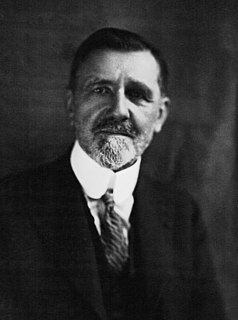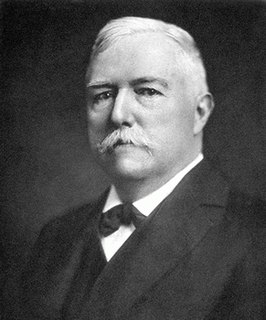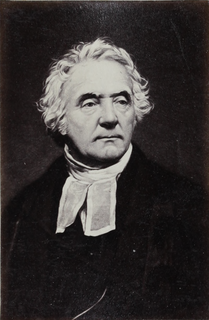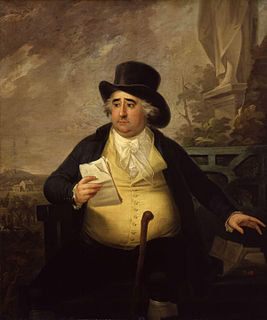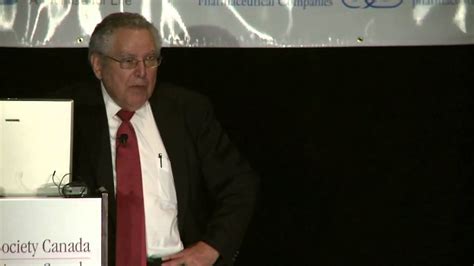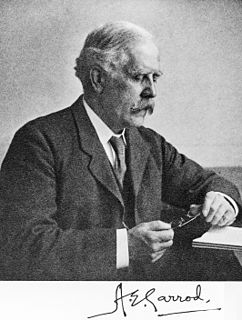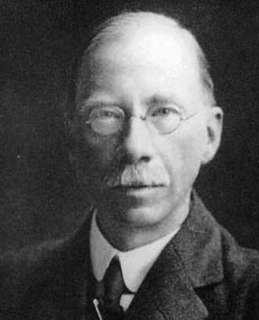Top 639 Conclusions Quotes & Sayings - Page 11
Explore popular Conclusions quotes.
Last updated on April 15, 2025.
Optimism is a tonic. Pessimism is poison. Admittedly, every businessman must be realistic. He must gather facts, analyze them candidly and strive to draw logical conclusions, whether favorable or unfavorable. He must not engage in self-delusion. He must not view everything through rose-colored glasses. Granting this, the incontestable truth is that America has been built up by optimists, not by pessimists, but by men possessing courage, confidence in the nation's destiny, by men willing to adventure to shoulder risks terrifying to the timid.
As you are aware, no perceptions obtained by the senses are merely sensations impressed on our nervous systems. A peculiar intellectual activity is required to pass from a nervous sensation to the conception of an external object, which the sensation has aroused. The sensations of our nerves of sense are mere symbols indicating certain external objects, and it is usually only after considerable practice that we acquire the power of drawing correct conclusions from our sensations respecting the corresponding objects.
O sancta simplicitas! What strange simplification and falsification mankind lives on! One can never cease to marvel once one has acquired eyes for this marvel! How we have made everything around us bright and free and easy and simple! How we have known how to bestow on our senses a passport to everything superficial, on our thoughts a divine desire for wanton gambling and false conclusions! - how we have from the very beginning understood how to retain our ignorance so as to enjoy an almost inconceivable freedom, frivolity, impetuosity, bravery, cheerfulness of life, so as to enjoy life!
I think the term "interbeing" has cropped up in a lot of places. It's in the atmosphere, because it's just so true, and the time for that truth to be revealed to mass society is here. It's like in those French bakeries where they don't need to add yeast to the dough, because the yeast is so ambient in the air that the dough gets quickened whether or not you add yeast to it. Many people, even without doing a whole lot of study and reading, are coming to the same kinds of conclusions and perceptions about the world as I am.
If you have come to these pages for laughter, may you find it. If you are here to be offended, may your ire rise and your blood boil. If you seek an adventure, may this song sing you away to blissful escape. If you need to test or confirm your beliefs, may you reach comfortable conclusions. All books reveal perfection, by what they are or what they are not. May you find that which you seek, in these pages or outside them. May you find perfection, and know it by name.
I try to structure albums in a pattern, like in a way where there's a motif that runs throughout or some kind of conceit that informs it in a general way. Maybe it's in a harmonic key. I like to go metastructural sometimes, like look at more than the three-minute passage and how that interacts with other pieces. And I've been increasingly interested in false starts and fraudulent beginnings, and things that don't reach their implied conclusions. I take an album and I kind of start moving things around like Jenga.
"The Universe repeats itself, with the possible exception of history." Of all earthly studies history is the only one that does not repeat itself. ... Astronomy repeats itself; botany repeats itself; trigonometry repeats itself; mechanics repeats itself; compound long division repeats itself. Every sum if worked out in the same way at any time will bring out the same answer. ... A great many moderns say that history is a science; if so it occupies a solitary and splendid elevation among the sciences; it is the only science the conclusions of which are always wrong.
O Lord, may I never want to look good. O Jesus, may I always read it all: out loud and the very way it should be. May I never look at the other findings until I have come to my own true conclusions: May I care for the least of the young: and become aware of the one poem that each may have written; may I be aware of what each thing is, delighted with form, and wary of the false comparison; may I never use the word "brilliant."
Think for yourself. Unplug yourself from follow-the-follower groupthink, and virtually ignore what everyone else in your industry is saying (except the ones everyone agrees is crazy). Do your own research, draw your own conclusions, set your own course, and stick to your guns. When you're just starting out, people will tell you you're wrong. After you've blown past them, they'll tell you you're crazy. A few years after that, they'll (privately) ask you to mentor them.
With reference to the narrative of events, far from permitting myself to derive it from the first source that came to hand, I did not even trust my own impressions, but it rests partly on what I saw myself, partly on what others saw for me, the accuracy of the report always being tried by the most severe and detailed tests possible. My conclusions have cost me some labour from the want of coincidence between accounts of the same occurrences by different eye-witnesses, arising sometimes from imperfect memory, sometimes from undue partiality for one side or the other.
It may seem rash indeed to draw conclusions valid for the whole universe from what we can see from the small corner to which we are confined. Who knows that the whole visible universe is not like a drop of water at the surface of the earth? Inhabitants of that drop of water, as small relative to it as we are relative to the Milky Way, could not possibly imagine that beside the drop of water there might be a piece of iron or a living tissue, in which the properties of matter are entirely different.
It is well to fetter the wings of our fancy and restrain its flights. It is quite possible we may have formed entirely erroneous ideas of what we actually see. The greenish gray patches may not be seas at all, nor the ruddy continents, solid land. Neither may the obscuring patches be clouds of vapor. Man is too quick at forming conclusions. Let him but indistinctly see a thing, or even be undecided as to whether he does actually see it and he will then and there set himself to theorizing, and build immense castles of conjecture on a foundation, of whose existence he is by no means certain.
People confuse the word cynicism with the word skepticism. One is “you’re not gonna pay attention to anything, think everything’s screwed up, nothing’s ever gonna work out right”, that’s cynicism. But skepticism is, “you’re presented with evidence and you do your best to draw conclusions based on that”. So, as the saying goes, Bill Nye, do you believe in ghosts? No. However, I would love to see one. Bring it on. I’m open minded to the idea, but the more I look into it in a skeptical frame of thinking, the less likely it seems.
The human mind feels restless and dissatisfied under the anxieties of ignorance. It longs for the repose of conviction; and to gain this repose it will often rather precipitate its conclusions than wait for the tardy lights of observation and experiment. There is such a thing, too, as the love of simplicity and system,--a prejudice of the understanding which disposes it to include all the phenomena of nature under a few sweeping generalities,--an indolence which loves to repose on the beauties of a theory rather than encounter the fatiguing detail of its evidences.
A willingness to vocalize feelings. How important it is to be willing to voice one's thoughts and feelings. Yes, how important it is to be able to converse on the level of each family member. Too often we are inclined to let family members assume how we feel toward them. Often wrong conclusions are reached. Very often we could have performed better had we known how family members felt about us and what they expected.
"No one is doing what we're doing." This is a bummer of a lie because there are only two logical conclusions. First, no one else is doing this because there is no market for it. Second, the entrepreneur is so clueless that he can't even use Google to figure out he has competition. Suffice it to say that the lack of a market and cluelessness is not conducive to securing an investment. As a rule of thumb, if you have a good idea, five companies are going the same thing. If you have a great idea, fifteen companies are doing the same thing.
But although in theory physicists realize that their conclusions are ... not certainly true, this ... does not really sink into their consciousness. Nearly all the time ... they ... act as if Science were indisputably True, and what's more, as if only science were true.... Any information obtained otherwise than by the scientific method, although it may be true, the scientists will call "unscientific," using this word as a smear word, by bringing in the connotation from its original [Greek] meaning, to imply that the information is false, or at any rate slightly phony.
Persecution always says, 'I know the consequences of your opinion better than you know them yourselves.' But the language of toleration was always amicable, liberal, and just: it confessed its doubts, and acknowledged its ignorance ... Persecution had always reasoned from cause to effect, from opinion to action, [that such an opinion would invariably lead to but one action], which proved generally erroneous; while toleration led us invariably to form just conclusions, by judging from actions and not from opinions.
Marry, sir, they praise me and make an ass of me. Now my foes tell me plainly I am an ass; so that by my foes, sir, I profit in the knowledge of myself, any by my friends I am abused; so that, conclusions to be as kisses, if your four negatives make your two affirmatives, why then, the worse for my friends, and the better for my foes.
The conclusions seem inescapable that in certain circles a tendency has arisen to fear people who fear government. Government, as the Father of Our Country put it so well, is a dangerous servant and a fearful master. People who understand history, especially the history of government, do well to fear it. For a people to express openly their fear of those of us who are afraid of tyranny is alarming. Fear of the state is in no sense subversive. It is, to the contrary, the healthiest political philosophy for a free people.
We too often forget that faith is a matter of questioning and struggle before it becomes one of certitude and peace. You have to doubt and reject everything else in order to believe firmly in Christ, and after you have begun to believe, your faith itself must be tested and purified. Christianity is not merely a set of forgone conclusions. Faith tends to be defeated by the burning presence of God in mystery, and seeks refuge from him, flying to comfortable social forms and safe convictions in which purification is no longer an inner battle but a matter of outward gesture.
To me, the thing that sets us apart from so many other animal species is our ability to ask questions, investigate, gather information, come to our own conclusions, and sometimes depart from the pack, sometimes move away from the tribe. And I'm not seeing a lot of that right now among a sizable portion of American politics and American voters. I'm not seeing that kind of use of critical thinking, and it really, really freaks me out.
It is instructive to see how organizations pursue their goal of reducing errors and uncertainty. They impose standards, employ checklists, demand that knowledge workers list assumptions for their conclusions and document all sources. These actions either directly interfere with forming insights or create an environment where insights and discoveries are treated with suspicion because they might lead to errors. They signal to knowledge workers that their job is not to make mistakes. Even if they don't make discoveries, no one can blame them as long as they don't make mistakes.
More people should visit Antarctica, metaphorically speaking, on their own. That is one of the conclusions I have reached, one of my recommendations: explore something, even if it's just a bookshelf. Make a stab in the dark. Read off the beaten path. Your attention is precious. Be careful of other people trying to direct how you dispense it. Confront your own values. Decide what it is you are looking for an then look for it. Perform connoisseurship. We all need to create our own vocabulary of appreciation, or we are trapped by the vocabulary of others.
Human beings are powered by emotion, not by reason. Study after study has proven that if the emotion centers of our brain are damaged in some way, we don't just lose the ability to laugh or cry, we lose the ability to make decisions. Alarm bells for every business right there. The neurologist Donald Calne puts it brilliantly: “The essential difference between emotion and reason is that emotion leads to action while reason leads to conclusions.”
I just would like to say that over more than a quarter-century as a scientist and a believer, I find absolutely nothing in conflict between agreeing with Richard [Dawkins] in practically all of his conclusions about the natural world, and also saying that I am still able to accept and embrace the possibility that there are answers that science isn't able to provide about the natural world - the questions about why instead of the questions about how. I'm interested in the whys.
Conclusions
I. A curve has been found representing the frequency distribution of standard deviations of samples drawn from a normal population.
II. A curve has been found representing the frequency distribution of values of the means of such samples, when these values are measured from the mean of the population in terms of the standard deviation of the sample...
III. Tables are given by which it can be judged whether a series of experiments, however short, have given a result which conforms to any required standard of accuracy or whether it is necessary to continue the investigation.
Signs are small measurable things, but interpretations are illimitable, and in girls of sweet, ardent nature, every sign is apt to conjure up wonder, hope, belief, vast as a sky, and colored by a thimbleful of matter in the shape of knowledge....wrong reasoning sometimes lands poor mortals in right conclusions: starting a long way off the true point, and proceeding by loops and zigzags, we now and then arrive just where we ought to be. Just because Miss Brooke was hasty in her trust, it is not therefore clear that Mr. Casaubon was unworthy of it.
'Believing' cannot tip the scales in making a historical judgement about whether something really happened. I can choose to believe that George Washington threw a silver dollar across the Rappahannock, but my believing that he did it has nothing to do with whether or not he really did do it. So also with the story of Jesus walking on water: Believing that he did it has nothing to do with whether he really did do it. 'Belief' cannot be the basis for historical conclusions; it has no direct relevance.
The world has no circumference. It would certainly have a circumference if it had a centre, in which case it would contain within itself its own beginning and end; and that would mean that there was some other thing which imposed a limit to the world - another being existing in space outside the world. All of these conclusions are false. Since, then, the world cannot be enclosed within a material circumference and centre, it is unintelligible without God as its centre and circumference.
Imagine a person who comes in here tonight and argues 'no air exists' but continues to breathe air while he argues. Now intellectually, atheists continue to breathe - they continue to use reason and draw scientific conclusions [which assumes an orderly universe], to make moral judgments [which assumes absolute values] - but the atheistic view of things would in theory make such 'breathing' impossible. They are breathing God's air all the time they are arguing against him.
The Jews started it all-and by 'it' I mean so many of the things we care about, the underlying values that make all of us, Jew and Gentile, believer and aethiest, tick. Without the Jews, we would see the world through different eyes, hear with different ears, even feel with different feelings ... we would think with a different mind, interpret all our experience differently, draw different conclusions from the things that befall us. And we would set a different course for our lives.
I am aware that the conclusions arrived at in this work will be denounced by some as highly irreligious; but he who denounces them is bound to show why it is more irreligious to explain the origin of man as a distinct species by descent from some lower from, through the laws of variation and natural selection, than to explain the birth of the individual through the laws of ordinary reproduction. The birth both of the species and of the individual are equally parts of that grand sequence of events, which our minds refuse to accept as the result of blind chance.
Nevertheless, scientific method is not the same as the scientific spirit. The scientific spirit does not rest content with applying that which is already known, but is a restless spirit, ever pressing forward towards the regions of the unknown, and endeavouring to lay under contribution for the special purpose in hand the knowledge acquired in all portions of the wide field of exact science. Lastly, it acts as a check, as well as a stimulus, sifting the value of the evidence, and rejecting that which is worthless, and restraining too eager flights of the imagination and too hasty conclusions.
The investigation of causal relations between economic phenomena presents many problems of peculiar difficulty, and offers many opportunities for fallacious conclusions. Since the statistician can seldom or never make experiments for himself, he has to accept the data of daily experience, and discuss as best he can the relations of a whole group of changes; he cannot, like the physicist, narrow down the issue to the effect of one variation at a time. The problems of statistics are in this sense far more complex than the problems of physics.
I don't think that developing countries gained from a two-stage process. A single phase summit (which is, after all, a two year process, not a three day event) would have built awareness, and would probably have led to more substantive conclusions at the end of the first summit meeting. Civil society may have gained a bit more from the networking experience, but it was less effective at networking in the second phase.
An axiomatic system comprises axioms and theorems and requires a certain amount of hand-eye coordination before it works. A formal system comprises an explicit list of symbols, an explicit set of rules governing their cohabitation, an explicit list of axioms, and, above all, an explicit list of rules explicitly governing the steps that the mathematician may take in going from assumptions to conclusions. No appeal to meaning nor to intuition. Symbols lose their referential powers; inferences become mechanical.
Maybe the truth does not matter, but I want to know it if only so that I can come to some conclusions about such questions as: whether he is angry with me or not; if he is, then how angry; whether he still loves me or not; if he does, then how much; whether he loves me or not; how much; how capable he is of deceiving me in the act and after the act in the telling.
What makes a free thinker is not his beliefs, but the way in which he holds them. If he holds them because his elders told him they were true when he was young, or if he holds them because if he did not he would be unhappy, his thought is not free; but if he holds them because, after careful thought, he finds a balance in their favor, then his thought is free, however odd his conclusions may seem.










